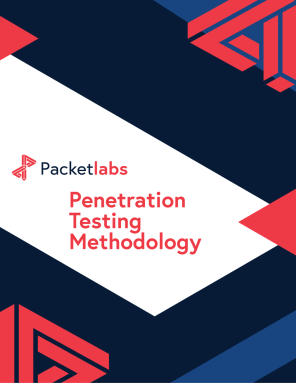Law Enforcement Penetration Testing
Secure Systems, Evidence, and Public Safety
84% of law enforcement agencies reported experiencing a cybersecurity issue, from ransomware and phishing to insider risks. These attacks don’t just compromise data; they cripple operations, jeopardize officer and community safety, and erode public trust.
Packetlabs partners with law enforcement cybersecurity teams to uncover vulnerabilities before adversaries do. Our penetration testing spans CAD systems, RMS, dispatch networks, mobile fleets, officer credentials, covert/undercover identities, and evidence repositories, and more. By validating controls against real-world attack methods, we help police organizations harden defenses, protect sensitive data, and ensure operational readiness in the face of evolving cyber threats.
With tailored penetration testing, we help law enforcement agencies:
1) Protect officer identities and sensitive department data across CAD, RMS, and evidence systems; 2) Safeguard digital evidence integrity to preserve chain-of-custody and judicial confidence; 3) Maintain operational continuity by preventing ransomware and malware disruptions; 4) Harden dispatch, body-worn camera systems and mobile fleets against targeted attacks; and 5) Meet global law enforcement compliance and security requirements, such as:
CJIS Security Policy PIPEDA/PHIPA, GDPR, SOC 2, NIST SP 800-115, ISO/IEC 27001, ITSG-33
Contact Us
With tailored penetration testing, we help law enforcement agencies:
1) Protect officer identities and sensitive department data across CAD, RMS, and evidence systems; 2) Safeguard digital evidence integrity to preserve chain-of-custody and judicial confidence; 3) Maintain operational continuity by preventing ransomware and malware disruptions; 4) Harden dispatch, body-worn camera systems and mobile fleets against targeted attacks; and 5) Meet global law enforcement compliance and security requirements, such as:
CJIS Security Policy PIPEDA/PHIPA, GDPR, SOC 2, NIST SP 800-115, ISO/IEC 27001, ITSG-33
Recommended Services for Law Enforcement
Strengthen Mission-Critical Applications
Internal and public-facing applications like crime reporting portals, records management dashboards, and evidence submission sites are essential to community trust, and prime targets for attackers. Packetlabs’ Web Application Penetration Testing uncovers flaws such as authentication bypasses, parameter manipulation, and insecure role-based access controls before adversaries can exploit them.
The Impact: Secures sensitive police data and operations by ensuring the web apps relied on by officers and the public remain safe and resilient.

Packetlabs: Uncompromising Standards
Identify Risks Before They Become Headlines
We’re committed to the greater good, and that includes your right to security and privacy. With an exceptionally trained team and robust testing methodologies, we go beyond checkboxes to deeply understand your unique penetration testing needs. With our consultative approach, we ensure that our clients understand our reports and assessments.
Convert checklists into real-time business outcomes.
Go Beyond the OSCP-Minimum
On top of employing only OSCP-minimum certified ethical hackers, our testers are rewarded for continuing to expand on their cybersecurity education, meaning that their expertise is constantly evolving to match emerging threats and technologies.
Go beyond the checkbox with North America's best pentesters.
Commit to Quality Business Impact Reports
Packetlabs goes beyond a basic vulnerability scan. Every finding is manually verified by our CREST-accredited team to ensure zero false positives. Our interactive reports illustrate real-world impact with reproducible steps that enable IT and security teams to act swiftly.
Partner with us to proactively protect what matters most.
Ready For More Than a VA Scan?
Packetlabs is a SOC 2 Type II attested penetration testing company, committed to 95% manual testing, proprietary EDR bypass techniques, zero outsourcing, and zero false positives.
We go beyond surface findings to deliver business impact analysis, clear attack-path narratives, and complementary retesting on applicable services, giving you confidence that every gap is closed. Curious what was missed in your last pentest?
Key Statistics for the Law Enforcement Sector
90%
of cybercrimes now involve cryptocurrency platforms, complicating law enforcement efforts... especially around tracking illicit transfers and enforcing traditional investigative methods.
50%
of critical infrastructure (including law enforcement) has been targeted in ransomware complaints, resulting in $16.6B in losses since 2024.
22%
of total public safety cyberattacks were targeted at the policing sector, highlighting how often law enforcement systems are chosen targets for disruption or extortion.
Resources

Penetration Testing Methodology
Our Penetration Security Testing methodology is derived from the SANS Pentest Methodology, the MITRE ATT&CK framework, and the NIST SP800-115 to uncover security gaps.
Download Methodology
Pentest Sourcing Guide
Download our Pentest Sourcing Guide to learn everything you need to know to successfully plan, scope, and execute your penetration testing projects.
Download Guide









